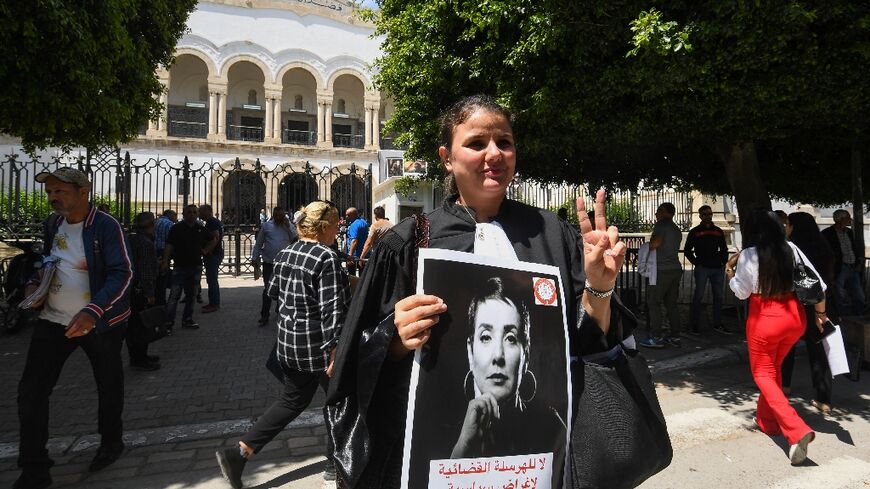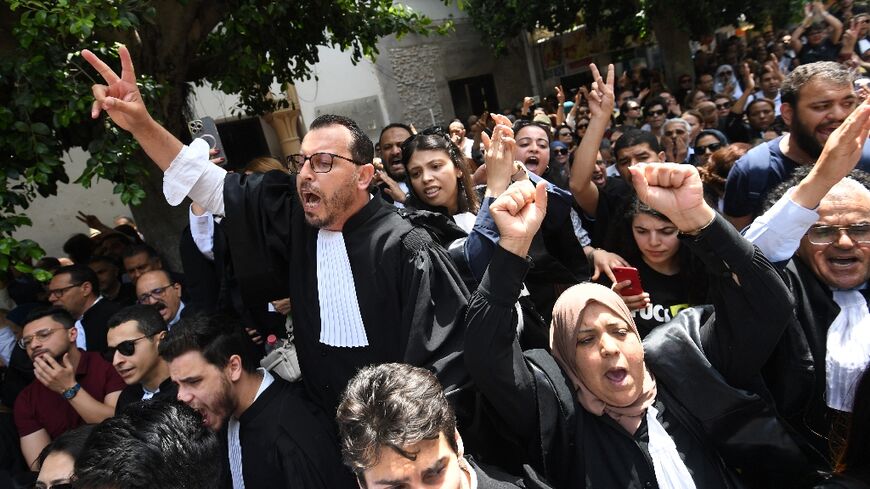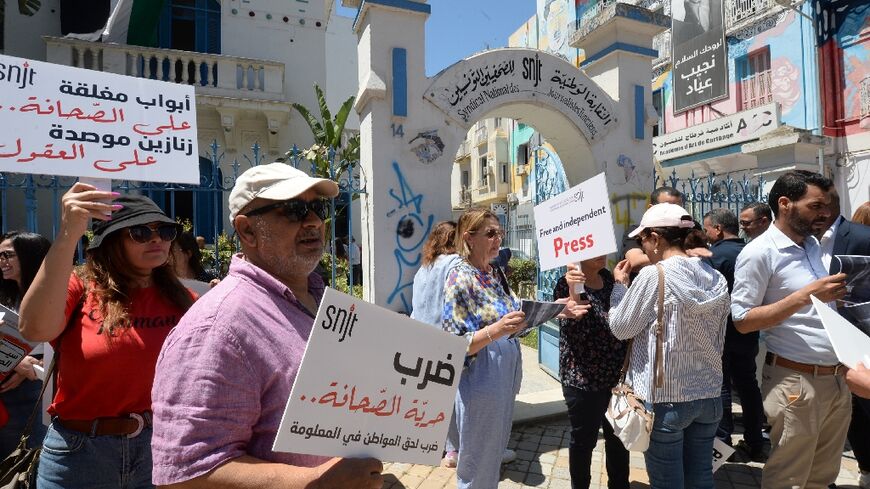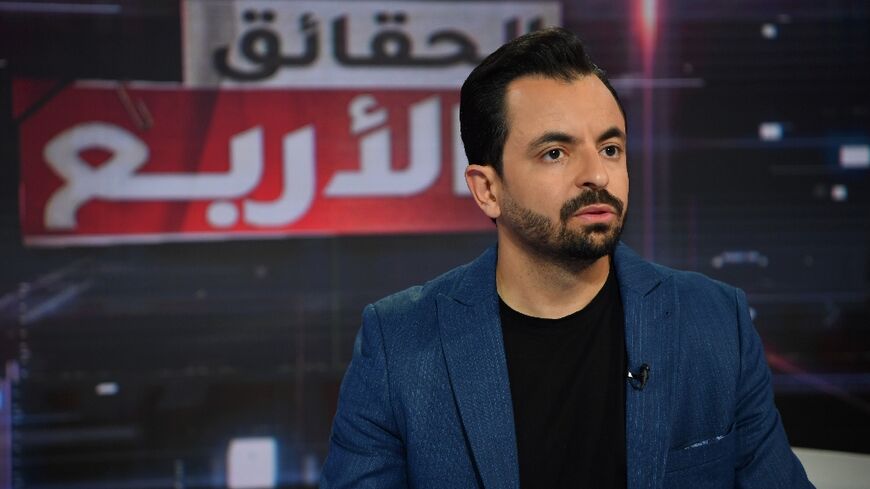Tunisian pundits handed one-year prison sentences
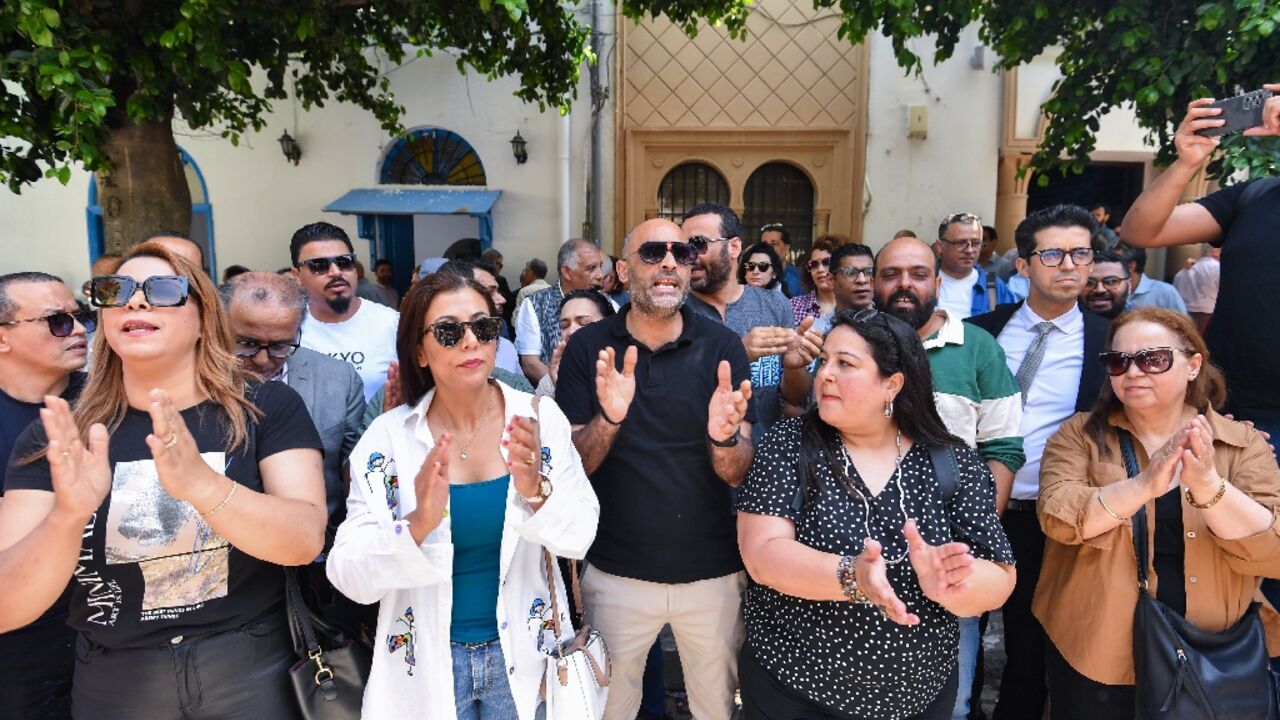
Two Tunisian media figures on Wednesday received one-year sentences for "spreading false news" and "defaming" others after making comments the authorities deemed critical, a court spokesman said.
Broadcaster Borhen Bssais and political commentator Mourad Zeghidi were arrested in mid-May under Decree 54, a 2022 law which critics have said is being used to stifle political dissent.
The two men received "six months for using communications networks to produce and spread false news and rumours with the aim to infringe upon the rights of others and public security", the court's spokesman, Mohamed Zitouna, told AFP.
In addition, they were handed another six-month prison sentence for "spreading news that includes false information with the aim of defaming others, tarnishing their reputation, and causing them material and moral harm", Zitouna added.
During their trial earlier in the day, Bssais and Zeghidi invoked freedom of expression and insisted that comments they had made were merely part of their jobs as media figures.
They were facing up to five years in prison under Decree 54, a law signed by President Kais Saied in September 2022 that punishes the use of communications networks to "produce, spread (or) disseminate... false news" with the aim of "harming" and "defaming" others.
"I'm neither an opponent nor a supporter of the president," Zeghidi said during the hearing.
"Sometimes I support his choices and sometimes I criticise them. It's part of my job."
He was being prosecuted for comments made in February and for expressing support for journalist Mohamed Boughalleb, who is also in detention.
Bssais was facing charges for "attacking President Kais Saied through radio broadcasts and statements between 2019 and 2022," according to his lawyer.
"I'm a host, so I must present all opinions regardless of their orientations," Bssais said during the hearing.
He said he had been treated as if he was "a "dangerous criminal".
- 'Politics enters the courtroom' -
Both men's lawyers slammed Decree 54, which critics have said is being used to stifle political dissent.
"When politics enters the courtroom, justice leaves," Zeghidi's lawyer, Kamel Massoud, said, blasting the decree as "unconstitutional".
"An entire people is being prosecuted under Decree 54," added Bssais's lawyer, Khaled Khrichi.
Dozens of journalists and rights defenders on Wednesday protested in front of the courthouse where the two men were being tried.
Bssais and Zeghidi were arrested just one day after masked police raided the Tunisian national bar association and arrested lawyer Sonia Dahmani, also over critical comments.
She was arrested after criticising the state of Tunisia on television in response to another commentator's claim that sub-Saharan migrants in the country were seeking to settle there.
Two days later, police raided the bar headquarters again and arrested another lawyer, Mehdi Zagrouba, who was subsequently admitted to hospital.
The bar association's president, Hatem Meziou, had then called for an end to "the abuse of power" and "violence" targeting lawyers and asked President Saied to intervene.
But Saied said that the arrests took place "in full respect for Tunisian law, which guarantees equality and the right to a fair trial".
- 'Interference' -
The arrests drew international backlash, after reactions from the UN, the EU, the United States and France.
But Saied, who seized sweeping powers in 2021, denounced the criticism as foreign "interference" and ordered the foreign ministry to summon the ambassadors of "several countries", without specifying which ones.
Since Decree 54 came into force, more than 60 journalists, lawyers and opposition figures have been prosecuted, according to the National Union of Tunisian Journalists.
The journalists' union last week condemned Bssais and Zeghidi's arrests, saying they were "a violation of the right to freedom of expression, press and publication".
Additionally, around 40 public figures including eight of Saied's political opponents, former ministers, and businessmen, are currently detained as part of an investigation into a "plot against the state security".


